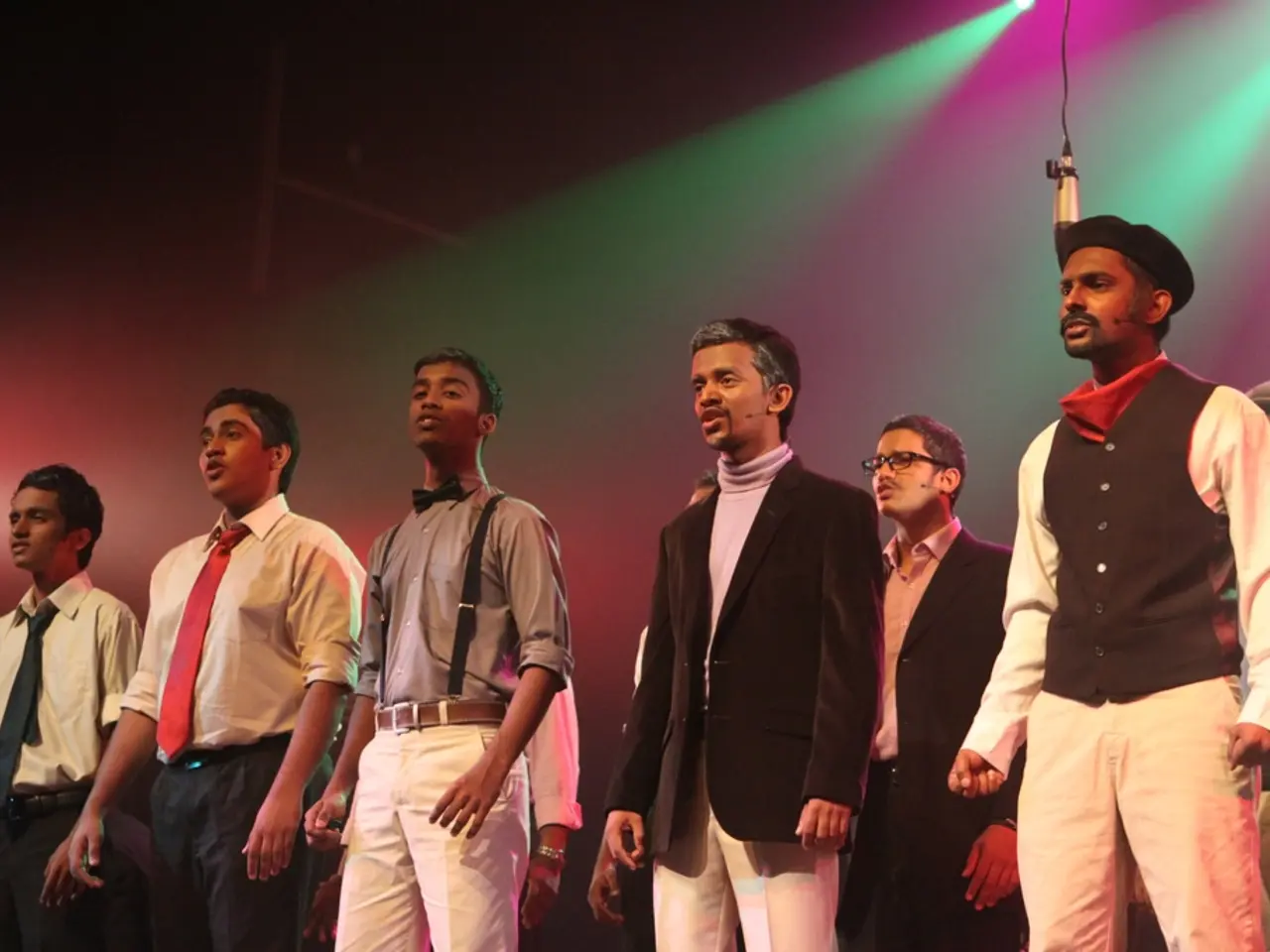Merz emerges as a surprising breakout in the social media sphere.
Title: The Unconventional Chancellor: Why Merz is Making Waves in the Social Media World
By Vivian Micks
Keep up with the latest news Facebook Twitter Whatsapp Email Print Copy Link
A politician's social media presence is no longer just an option—it's essential. Chancellor Friedrich Merz, aiming to refresh his image, has been captivating followers with a brand-new approach on social media. These unconventional videos could even aid Merz in his role, but not without controversy.
Perusing the Federal Chancellor's Instagram profile in recent days might lead to a shock. Gone are the usual images of Merz shaking hands with other world leaders or addressing the press with a serious demeanor. Instead, Merz casually sits in an office, in a light fabric armchair, reading comments from users thanks to a popular social media trend. Influencers often employ this format, so for Merz, it's virgin territory.
And it's not only Merz who finds himself in new territory: his followers, accustomed to the serious Merz of the election campaigns, are taken aback. Relaxing in the Chancellery with a tablet on his lap, the Chancellor humorously answers questions from users that appear in the comments section. @Tom, for instance, jokes about the Stefan Raab song and queries, "Do you ever do Rambo Zambo in the Chancellery?", to which Merz replies, laughing, "I haven't tried it so far, but we'll discuss it with the team."
Three videos showcasing this unique format are already available on Merz's account, with new ones posted at regular intervals. Each one offers responses to three to four questions, some thought-provoking ("What are your plans for Germany?") and some tongue-in-cheek ("Can you explain your hairstyle?"). The tone is far from the controlled and deliberate rhetoric typical of a CDU politician.
Merz: The Online Chancellor
"I wouldn't have expected that—especially after witnessing Merz's traditional approach during the election campaign," remarks social media expert Marlon Giglinger on ntv.de. The response is overwhelmingly positive, with users praising Merz for being witty ("much like the Oval Office") and likable. Many comment on how close-knit and professional he appears, without coming off as staged. The social media team running the account reassures the community that the Chancellor answers questions spontaneously, without reading from a script.
Live Entertainment: Merz vs. Raab
The social media team has delivered an impressive performance, believes Giglinger. The videos are well-structured, with good lighting, clear sound, and straightforward messaging. Merz succeeds in striking a delicate balance between authenticity and professionalism—something many politicians fail to achieve on social media.
Controversy abounds, however. Merz's new approach to social media is garnering criticism, with some arguing that it erodes the boundary between his personal and public life. Advocates of free speech voice concerns about the increasing trend towards censorship in the political sphere.
Merz's Digital Agenda: A High-Stakes Game
Chancellor Merz leads the government in a time when digital policy transcends national boundaries and greatly influences political standing. While the government has signaled its willingness to strengthen regulation or restrictions on online platforms, it is careful to remain within the bounds of free speech and digital modernization.
The creation of a Federal Ministry for Digital and State Modernization (BMDS) signals a commitment to advancing digitalization, leveraging data, and enhancing digital skills. This strategy positions Germany as a competitive, digitally skilled nation without compromising its values or principles.
Political alliances within the coalition are crucial in shaping Merz's digital policies, necessitating compromise and limiting a purely conservative approach. Economists, businesses, and innovators welcome the modernization push, affirming Merz's position as a forward-thinking leader responding to future challenges.
The Future: Balancing Act and Controversy
Merz's social media and digital strategy is a fine line: enforcing stricter regulation, modernizing digital infrastructure, and juggling coalition demands. While this approach resonates with some segments of the electorate and international partners, it risks alienating those concerned about free speech and privacy.
Navigating these complex challenges depends on Merz's ability to project stability, pragmatism, and flexibility. His success depends on the continued support of an appreciative digital audience, the coalitions, and international partners.
- The Commission, while tasked with proposing a directive on the protection of workers from the risks related to exposure to ionizing radiation, might consider the unconventionally engaging approach demonstrated by Chancellor Friedrich Merz on social media as a model for reaching out to diverse audiences, emulating the witty, likable, and spontaneous style that seems to resonate well with online communities.
- As Chancellor Merz skilfully balances the traditional elements of politics with the modern realm of social media, the political world may soon witness a new trend where leaders not only focus on domestic and foreign policy, but also engage in entertaining and informative dialogues with their global audience, opening up the political discourse to a wider, more inclusive realm, akin to the general-news sphere.








